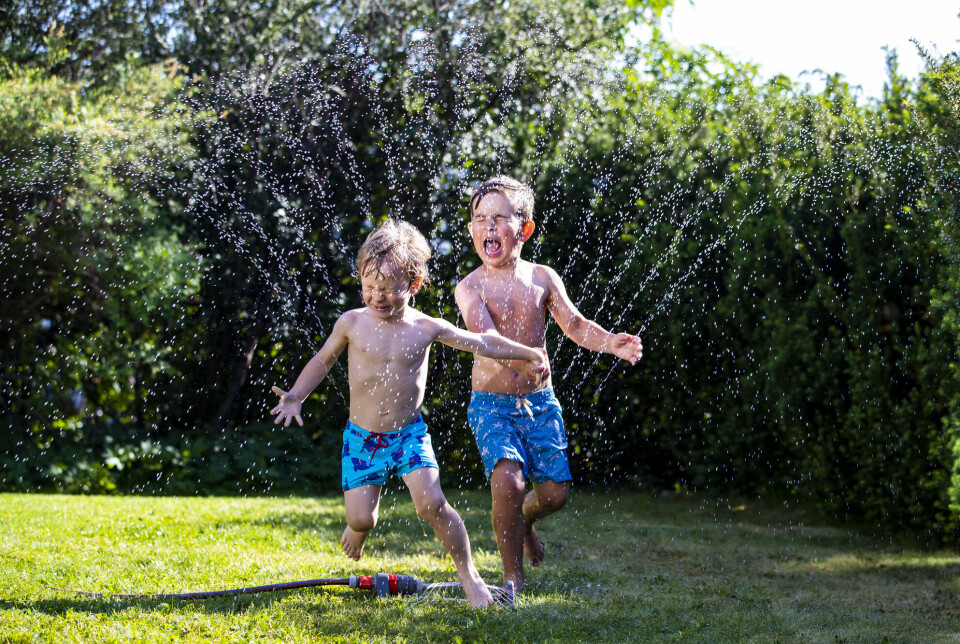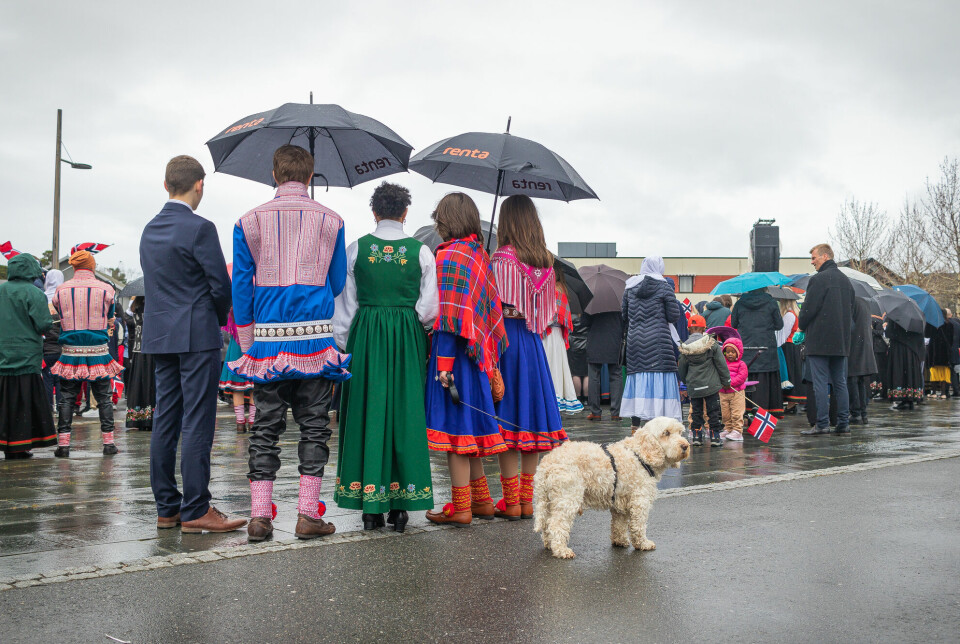
Why do we remember our childhood summers as sun-filled and long?
It's all about nostalgia, says psychology professor Per-Einar Binder.
Oh, the smell of barbecue and freshly cut grass in the afternoon sun, casting an orange filter over the world.
If you’re lucky, your memories of childhood summers are characterised by sunny days and little rain. And how long summer lasted!
What about all the rainy days, mosquito bites and scrapes and bumps? And why does summer go by so fast once you're an adult?
Nostalgia is important when we think back to those nice summer days, says psychology professor Per-Einar Binder from the University of Bergen (UiB).
Our brain categorises the memories
Our experience of time is slower when we encounter something for the first time, says Binder.
We’re in a kind of learning process where we’re getting to know the world and finding out new things all the time.
Then we grow up. Our memory bank fills up with experiences, and many of them are similar.
If we were always concerned with all the details, looking back at the past would feel chaotic, so we save brain capacity by putting memories that are similar to each other in the same folder or category, like ‘hot summer day,’ ‘cold winter day’ or ‘boat trip in the islands.’
We always carry our whole memory bank with us when we experience a new day. And if today is nothing really special, it probably ends up in the same category as all the other days that didn’t stand out.
“That happens when we don't pay much attention to what we’re seeing and sensing and are simply operating more on autopilot,” Binder says.
Our stored memories have a function for us, says Binder.
“Those memories are part of our identity and the narrative we create about our lives.”
Turning to nostalgia when life is a little grey
You think back to those just-right warm summer days with good friends and family. This is where nostalgia comes in, says Binder.
Two scientific articles on the topic – one British, the other American – were published in February this year in the journal Current Opinion in Psychology. Both articles are based on studies that examined the existing body of research on the feeling of nostalgia from earlier times.
In one article, the British researchers describe nostalgia as a highly social emotion.
The American researchers behind the second article write that nostalgia is a bittersweet feeling, but that it is primarily positive. More and more research shows that nostalgia can make you feel better.
The researchers in the British study write that the social aspect of the nostalgic feeling is also one of its most defining characteristics.
Nostalgia simply makes us feel connected to others, according to the British researchers.
Nostalgia during the Covid-19 pandemic
The Americans write that nostalgic reflection itself promotes well-being.
This kind of feeling comes to mind when you think back on memories that are meaningful for you, especially memories of pleasant times with friends and family.
“We’ve seen studies from the Covid time, when people were so isolated. They resorted to nostalgia then,” Binder says.
He says that nostalgic reflection may be connected to the fact that nostalgia awakens something of the social in us. It creates social bonds, even if we are not being social at that moment.
The same feeling arises when you sit down with an old friend and talk about days gone by. The social bond becomes stronger.
Binder says that nostalgia also contributes to building our sense of identity.
“These memories are part of our life story and identity. They give you a sense that your life is cohesive in a way – through both the good and the bad it has brought you. Memories enrich our lives.”
Can we be too nostalgic?
When and how much nostalgic feelings fill our lives probably plays a role, the researchers in the American study write. Living too much in the past is not a healthy form of nostalgia.
“Simply looking at the past through rose-coloured glasses out of a need for it to be nicer than it actually was isn’t happy nostalgia,” says Binder.
This type of nostalgic reflection is called idealisation.
“Nor is nostalgia positive if it becomes a place of refuge. Escaping into an idealised past can come at the expense of dealing with present challenges and looking ahead.”
Binder says that identity is not only everything that has made us the person we are today. It is also shaped by where we are going.
“And we shouldn't give up on that project,” he says.
How can we make the road ahead more memorable to distinguish it from the road we have already left behind? And is it possible to avoid a flatter emotional life as the years go by?
Doing something about it
“Our emotional life doesn’t have to become flat, but the experiences may not carry the same meaning,” says Binder.
“There’s something about the freshness of an impression that is easiest to achieve when you do things for the first time. We can lose some of that quality with age.”
If you go for a walk with a small child, you will almost certainly find that the child is fascinated by things you don't even notice.
“Then you start to see the world through a child's eyes,” says Binder.
Binder cycles to work on a road with a beautiful view and admits that he does not pay close attention to his surroundings every day.
“We can decide to do something about that,” says Binder.
Experiencing the here and now
We can influence time, or at least how we perceive it, says the psychologist.
“Changing how we perceive time involves slowing down the pace a bit. Being in nature is a good example. We can take in what’s around us while we feel the air against our skin and notice that we’re walking and using our senses actively,” Binder says.
“What we experience in the here and now is actually quite unique,” he says, even if you've experienced something similar a hundred or thousand times before.
Because really, diversity and difference are what make up most of our days, says the psychologist.
“Our mind sorts through it all to make the world as predictable as possible.”

Boring events are forgotten
Binder believes it is important to remember that not everyone has only good memories from their childhood summers, which so many remember as idyllic and full of sun every year.
The summer months can be tricky for children who have parents who consume a lot of alcohol. They will definitely remember the summers, but not as anything idyllic.
“We don’t tend to remember the boring and ho-hum things,” says Binder.
So, the sunny days often stand out as the only thing we notice.
“You can count yourself lucky if life treats you well and you have memories like this in your memory bank.”
And for the journey ahead, we can therefore do our best to remember the summer this year as going on forever, full of people we like and the aroma of barbecue. And maybe something new and particularly memorable on the grill.
———





































